
views
Improving Your Odds of Conceiving

Cut back on the caffeine. Too much caffeine can limit your fertility. Aim for no more than 500 mg per day. If you brew your own coffee at home, this is about five cups. However, if you grab your java at the local coffee shop, that 16-ounce serving of latte or Americano should be your limit for the day.

Eat nutritious foods. You should always eat a balanced diet. Aim for a variety of foods that will help you get your daily requirements of iron, calcium, folic acid, and protein. You can get these nutrients from raisins, dark leafy greens, legumes, broccoli, and fortified whole grain breads. Omega-3 fatty acids are also important. If you're vegan, you don't have to start eating fish for omega-3s. You can get them from flax seeds and walnuts. Make sure to limit sugary foods and saturated fats as well.
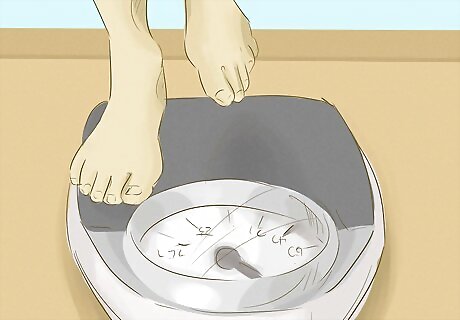
Achieve a healthy body weight. If you're overweight, it could take you twice as long to get pregnant as it would for a woman of normal weight. If you're underweight, it could take you four times as long. Talk to your doctor about an exercise regimen that will help you achieve a healthy Body Mass Index (BMI). If you are a healthy body weight, keep your diet consistent and healthy.

Limit your alcohol intake. Alcohol has a negative effect on fertility. Women who consume more than 2 drinks per day have a high risk of infertility, and men who consume alcohol in excess tend to have lower sperm counts. If you decide to consume alcohol, one drink (12 fl oz./355 mL regular beer, 5 fl oz./148 mL table wine, 1.5 fl oz./44 mL distilled spirits) per day should be your limit.

Stop smoking. If you smoke, quit the moment you decide you want to have a baby. Smoking could make you less fertile and increase your risk of an ectopic pregnancy and miscarriage. It's also known to cause a host of birth defects, such as low birth weight and underdeveloped lungs. If you have a partner, they should quit, too. Secondhand smoke is just as dangerous as primary smoke. If your partner is the intended father, smoking can have a negative effect on his sperm.
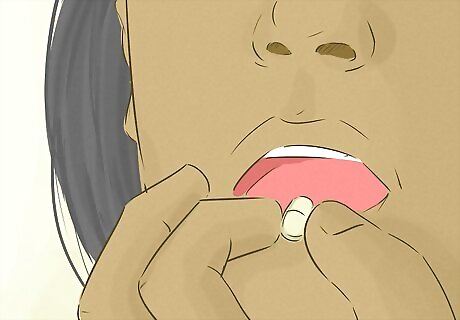
Take prenatal vitamins. Prenatal vitamins prepare your body for the task of nourishing an extra person. They also contain extra folic acid, which can prevent spina bifida in the developing fetus. Because spina bifida often develops before a woman know she's pregnant, doctors recommend taking a prenatal vitamin as soon as you decide you want to start a family.

Visit your doctor. They'll probably do a full exam and go over your medical history. Tell them about any prescription medications, vitamins, or herbal supplements. They'll tell you which ones you'll need to stop taking and which ones are safe. Let them also know about your: Reproductive issues, including past pregnancies, miscarriages, ovarian cysts, fibroid tumors, endometriosis, sexually transmitted diseases (STDs), or reproductive cancer. Vaccination history, especially vaccines for measles, mumps, and rubella. If you contract these illnesses during pregnancy, they can harm the fetus. Family medical history, including siblings or parents who have had cancer, heart disease, or genetic abnormalities. Exercise habits. Partner's medical history, if applicable. This includes low sperm count, history of measles, mumps, rubella, or other illnesses that can affect fertility.

Seek a specialist if necessary. Women's fertility steadily decreases after the age of 35. For men, the effects are less clear. If you're under 35, try to conceive for a year before you see a doctor for fertility testing. If you're over 35, wait six months. See your family doctor or regular gynecologist first. They'll refer you to a specialist if you need to see one. Give your doctor details about every measure you've taken to conceive. The most common tests you'll undergo are: Pap smear to check for cervical cancer. Urine test to check for chlamydia, which can block your fallopian tubes. Blood test during your period to check for hormonal imbalances. Blood test during or after your period to test for ovulation. Blood test at any time during your cycle to check for rubella.
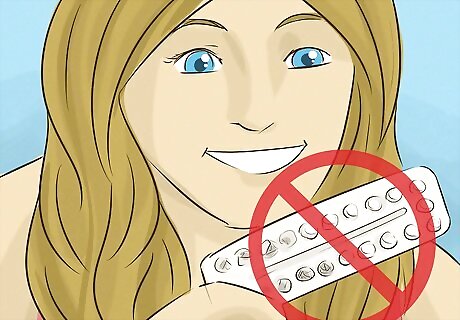
Stop using hormonal birth control. These methods (pills, patch, intrauterine contraceptive, Depo-Provera, etc.) can alter your menstrual cycle. To plan your pregnancy, you'll need to know the length of your cycle and how long your periods last without birth control. If you were on the Pill or the patch, your body might need extra time to re-regulate. If you need another month or two, use a condom. Each woman's body is unique. Some women have to wait up to a year after stopping their birth control, while others can get pregnant immediately.
Timing Your Ovulation Cycle
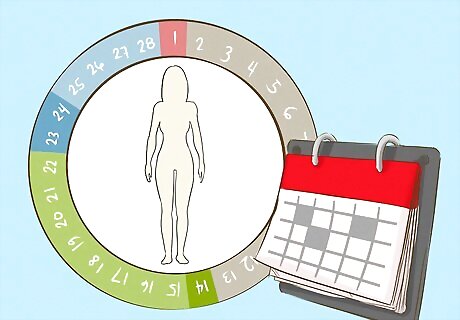
Count the days of your menstrual cycle. If your cycle is regular, you may be able to determine your egg's next release through your Fallopian tubes with simple math. If your cycle is 28 days long, you'll probably ovulate around day 12 to 14. A good rule of thumb is to count back 16 days from the first day of your next period. You'll probably ovulate up to five days after that day. There are also plenty of calculators available online.

Chart your basal body temperature. Your basal temperature (lowest body temperature in any given 24-hour period) will rise 0.2 degrees F (0.11 degrees C) a few days after you ovulate. You can use any thermometer that measure to 1/10th of a degree. You're looking for fluctuations that are smaller than a degree, which are difficult to see on a regular thermometer. You can find a basal thermometer at your local drug store or big box store.
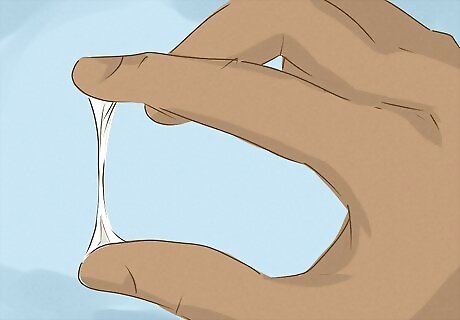
Check your cervical mucus. Monitor color and texture. Your mucus will increase and be most slippery around the time of your ovulation. If you can stretch it between your fingers, you probably are ovulating. These changes can be difficult to detect, so monitor for them often.
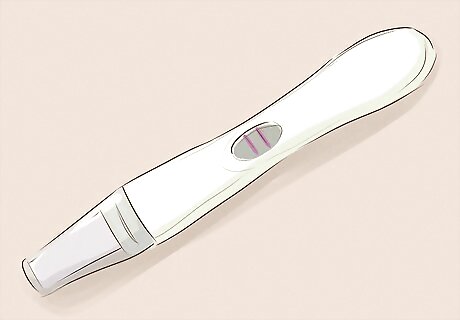
Buy an ovulation kit. Ovulation prediction kits can predict a released egg a day in advance. It uses the same methodology as a pregnancy test. However, they can cost anywhere from $20 to $50 for a box of test strips or sticks. You can buy them in your local drug store. Ovulation kits test levels of luteinizing hormone (LH) in your urine. This means you'll have to urinate on a stick. Unfortunately, it's not 100 percent accurate, so don't depend only on this method.
Having Intercourse Effectively

Start having intercourse before you ovulate. Sperm can survive for up to five days in your body. Therefore, if you aim for two to three days before to the day of ovulation, you should be able to get pregnant. If you want to play it safe, have intercourse every day or every other day during the second and third weeks of your cycle.
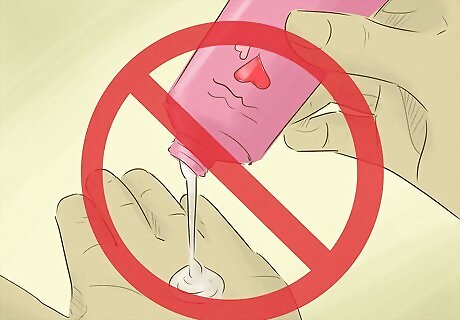
Skip the lubricants. Artificial lubricants, especially those with spermicide in them, can slow down or kill sperm. Instead, have your partner make time for foreplay. However, if you need a lubricant, go for something natural like mineral oil or canola oil.

Relax. When you're stressed, it can mess with your cycle. Calm down and have fun. If your life is full of undue stress, try picking up yoga or another meditation practice. Taking just 15 minutes out of your day to calm yourself can help greatly.




















Comments
0 comment